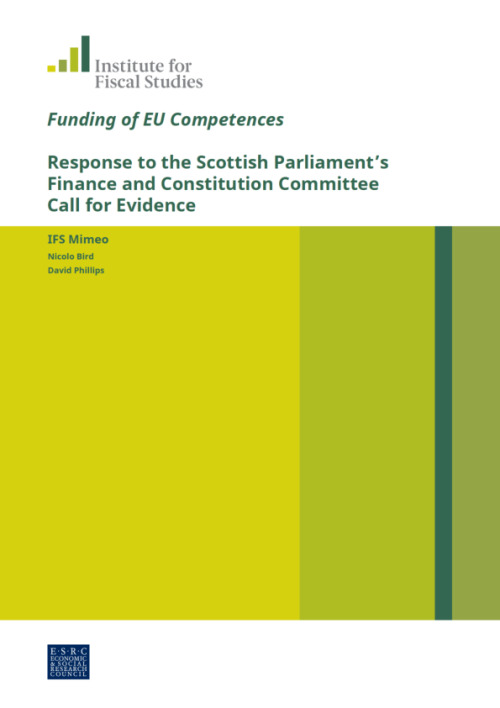This note is a response to the consultation from the Finance and Constitution Committee of the Scottish Parliament concerning the funding of devolved competences which are currently funded at a European Union (EU) level, and options available for how these funds will be distributed across the UK.
The key points made by this note are:
- EU funds are currently either pre-allocated to member states or in the case of structural funds particular regions within them according to formulae based on state/regional characteristics; or are competitive funds that can be bid for by governments, universities, businesses and other organisations.
- Scotland is due to receive 5.6 billion Euros in funding from the pre-allocated funds for the 2014–2020 EU budget period. It has recently received more than a population share of funds from some of the main competitive funds.
- The UK (and therefore Scotland) will continue to operate existing EU schemes until at least the end of 2020 (and perhaps June 2022 in the case of farm payments). But beyond that decisions will need to be taken about whether to replace these schemes, and if so, the level of funding and the way that funding is allocated.
- The Barnett formula is simple and well understood. The Scottish Government also has significant flexibility over how it spends annual increments to its funding as a result of the application of the Barnett formula. But the formula has design flaws which mean its use in the allocation of funding to replace current EU schemes should be avoided. In particular it takes no account of differences in population growth, or differences in the initial levels of funding. The latter results from its use of nominal cash-terms changes in English budgets per person as the basis of changes in allocations to devolved governments. This can lead in the long-run to spending levels to converge between England and the devolved nations: the so-called Barnett squeeze.
- An Indexed Per Capita (IPC) formula could be used that avoided this problem. But the UK and Scottish governments may want to allocate funding in ways that account for more than just relative population growth and initial levels of funding. This could include using local, regional or national level characteristics, and competitive bidding processes. There are also decisions to be taken as to whether funding schemes will be designed and operated at the UK level, devolved government level, or some other level (e.g. city-region).
- Different ways of allocating money would involve different incentives – including for growth and development and environmental improvements. They may also be associated with different outcomes. The optimum allocation method and governmental level for allocation decisions is likely to differ between funding purposes (e.g. between regional development funds and research funds).










